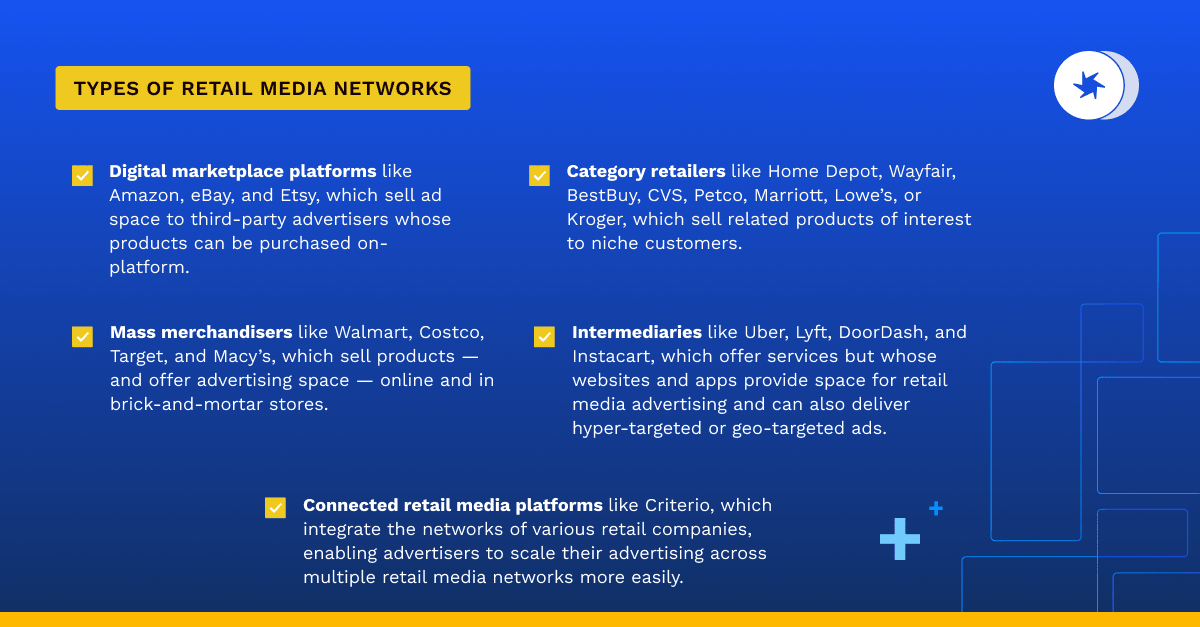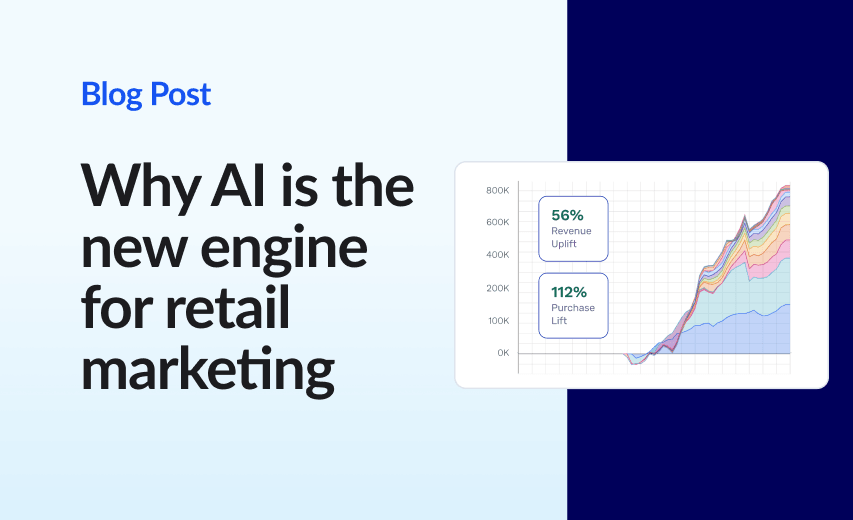Benefits to advertisers
Advertisers benefit from retail media networks in three ways.
More effective targeting - RMNs optimize ad placement and report on campaign performance, often in real time. Because RMNs use first-party data — data collected directly from their customers — RMNs help marketers target their ad spends more efficiently, optimize campaigns, connect with potential customers, and engage with existing customers more effectively.
Higher conversion rates and sales volumes - Since the retailer owns the network, an RMN is a good way to reach prospective buyers when they are most receptive: actively comparing products or have already decided to make a purchase. This increases the likelihood of converting a prospect to a buyer.
More accurate ROI calculations - Because retail media networks are data-driven and can accurately link ad impressions directly to purchases, the analytics they offer enable advertisers to understand their audience’s shopping behavior, connect ad spend with product sales accurately, make reliable ROI calculations, and hone strategic business decisions about inventory, sales and marketing resources, and ad budgets.
A majority of marketers cite the ability to reach an incremental audience and leverage a retailer’s first-party data as primary benefits of RMNs.
Benefits to consumers
Consumers benefit from the more personalized shopping experience that retail media networks provide. Seeing ads relevant to their interests helps them discover new products and brands and makes it easier to comparison shop.
Revenue from RMNs may also help retailers offset overhead costs, allowing them to price their products competitively — which means consumers may get a better deal on the products they purchase on a retail media network’s website.
Benefits to retailers
Retailers benefit from retail media networks because they provide additional revenue streams:
Because the customer data they aggregate is so valuable, many large retailers — including Amazon, Target, Kroger, and Walmart — have become de facto data companies. The data not only adds value to the ad space in the retail media network but has become a commodity itself.
By offering advertisers ad placements informed by high-quality first-party data, even smaller retail media networks can attract ads from brands that would usually purchase ads with a larger audience because the audience they can provide is so likely to convert impressions to purchases.
Retail media networks can also increase the value of individual transactions through cross-selling and upselling.





